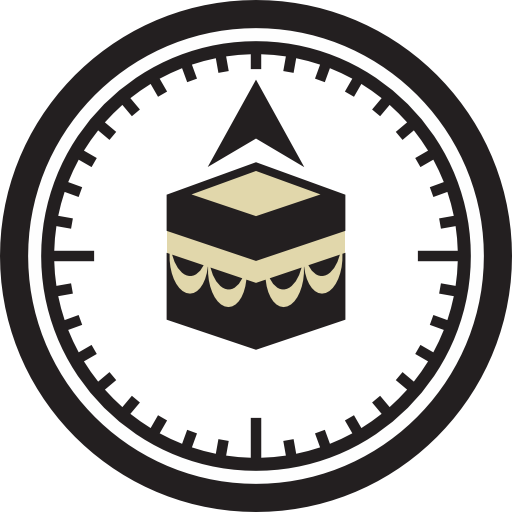Prophet Muhammad ﷺ was born in Makkah in the year when the Abyssinian (Ethiopian) Abrahah tried to destroy the Ka^bah. lnstead, Allah destroyed Abrahah and his army. At that time in Makkah, the people named years by major events. Therefore, it is said that the Prophet ﷺ was born in the ”Year of the Elephant”. It was the year 571 of the Western calendar.
Abrahah was a Christian ruler in Yemen, ruling on behalf of the Abyssinian King. By that time, the true teachings of Jesus عليه السلام had been perverted and Abrahah had a blasphemous belief. Abrahah knew of the Arabs’ strong attachment to the Ka^bah and that many would travel there during the Hajj season. He built a huge church called Qullays in Yemen and wanted the people to come there instead of going to the Ka^bah. However, when he found that the Arabs’ hearts were still attached to the Ka^bah, he set out with his army to destroy it. With the army they brought elephants; one was a very big elephant that would lead the others. When the army came close to Makkah, they attacked the livestock in the area. They took 200 of ^Abdul-Muttalib’s camels.
By the time of Abrahah’s invasion, ^Abdul-Muttalib lbn Hashim had become one of the leaders of Makkah. As most of the people in Makkah, he was from the tribe of Quraysh. Abrahah sent one of his soldiers to Makkah where he met with ^Abdul-Muttalib. The soldier said, ”The king has sent me to tell you that he did not come here to fight you unless you fight him first. Rather, he came to destroy this House (meaning the Ka^bah). Then he will leave you.” ^Abdul-Muttalib said, ”We do not have the ability to fight him. We will not try to confront him.” (Abrahah’s army was huge in comparison to the numbers of Quraysh).
^Abdul-Muttalib went with the messenger to Abrahah. When he entered the king’s chambers, Abrahah praised and honoured him then he told the translator, ”Ask him about his need from the king.” The translator asked and ^Abdul-Muttalib replied, “My need is for the two-hundred (200) camels that were taken from me during the attack to be given back to me.”
Abrahah told his translator, ”Tell him: When l first saw you l was impressed, but now l do not think highly of you. l came to destroy something you consider holy in your religion, and you do not even mention it! Rather you ask about you camels that were taken?”
^Abdul-Muttalib replied, ”I am the lord (owner) of the camels, ”as for this House, (the Ka^bah), it has a lord who will protect it.” Abrahah returned the camels to ^Abdul-Muttalib. Fearing that the army would harm people on its way to Makkah, ^Abdul-Muttalib instructed Quraysh to disperse in the mountains, they obeyed him.
Abrahah directed his army towards Makkah with the large elephant in the front. However, the elephant refused to advance towards the Ka^bah despite the beating and orders given to it to their surprise, when they directed it towards Yemen and ash-Sham areas it ran quickly without delay.
Then, God sent a large number of birds from the direction of the sea in small groups. Each bird carried three stones, two in its talons and one in its beak. Each stone was bigger than the size of a lentil but smaller than the size of a chickpea and on each was written the name of one of Abrahah’s. The stone would fall on the named soldier, enter from his head, and leave from his bottom, killing him. Thus, Abrahah’s army was destroyed and was unable to enter into the Holy mosque of Makkah. The Ka^bah was safe from his evil.
It was said that Abrahah’s army was 60,000 soldiers. All of them died instantly except for Abrahah and a small group with their commander, who returned to Yemen, told their story, then they died. Abrahah became very sick. His body fell apart, one small piece at a time. He did not die until his heart came out of his chest.

At the time when Prophet Muhammad ﷺ was born, the people of Makkah were in the terrible state of worshipping idols. They believed that God was only one of many gods. The people of Makkah made many statues and worshipped them unrightfully. They believed that the Ka^bah was a special structure, but they put their ugly idols around it. People used fortune-telling arrows to make decisions and sought fortune-tellers for advice.
People came from all around to visit the Ka^bah and worship the idols there. They claimed to be following their forefather, Abraham, in making Hajj (Pilgrimage). However, their ugly actions were not in any way similar to Hajj performed by Prophet Ibrahim (Abraham) before them. They circled the Ka^bah naked while clapping and whistling. The Makkah got wealthy from the money spent by the tribes who came to their city to worship unrightfully.
Prophet Muhammad ﷺ was orphaned as an infant. Some scholars say that the Prophet was two months old when his father died, and others say that Aminah was still pregnant with the Prophet when ^Abdullah died. ^Abdullah left an inheritance of five camels, some goats, and a female slave called Barakah (also known as Umm Ayman).
Aminah narrated that she did not feel the weight of her pregnancy like other women do. During her pregnancy, Aminah saw a vision (while she was in a state between awake and sleep). In this vision someone said to her, ”Do you know with whom you are pregnant? You are pregnant with the Master of this Nation and its Prophet.”
Aminah had an easy delivery. Prophet Muhammad ﷺ was born on a Monday, on the 12th day of the 3rd lslamic month of Rabi^unil-Awwal1. This was about fifty (50) days after the attack on Makkah speared by the elephants of Abrahah.
It was narrated that the Prophet’s umbilical cord was already cut when he was born. Hence, no one had to do that cutting. Also, it is said that the Prophet was born already circumcised.
Aminah sent a message to Abdul-Muttalib to tell him of the birth of his grandson and to ask him to come. Abdul-Muttalib came. Aminah told him about the wonderful visions that she had while pregnant with the baby, and how easy the birth was.
^Abdul-Muttalib was very pleased and took the blessed baby to the Ka^bah. He went inside of the Ka^bah with the baby and thanked God for the birth of this special grandson. ^Abdul-Muttalib gave the baby the name Muhammad, meaning, ’the one praised by many for his numerous good attributes.’
At the time, Muhammad was not a common name among the Arabs. Before the naming of our prophet, only seven children had recently been named Muhammad. At that time, the Arabs were hearing that shortly a prophet would be born, named Muhammad. Those people hoped that their son would be that prophet. Yet the name Ahmad, another name of Prophet Muhammad ﷺ, was never given to any one before our Prophet. Both names, Muhammad ﷺ and Ahmad, were cited in the book of Prophet Jesus, peace be upon him, the Injil.
Islamic historians narrated that when the Prophet was born, fourteen balconies of the Persian King’s biggest palace fell down. Also, the fire that the Persians worshipped went out, even though it had not gone out for one thousand years. The Persian King (Kisra) saw a dream about which he felt very uncomfortable. He gathered his advisors and consulted with them about his dream. He told them that in his dream he saw camels guiding horses. These animals crossed the Tigris River, and from there they spread throughout his kingdom.
While Kisra was telling his advisors this dream, they got the news that the fire they worshipped had gone out. Then Kisra got more disturbed. His religious leader told him, ”l saw the same dream this past night. I interpret it as follows: The Arabs will leave their land and take over the rulership of Persia. Those Arabs will rule our empire. This will take place after fourteen Persian kings rule, equal to the number of balconies that fell from the palace.”
Kisra thought to himself, ”It will be a long time before fourteen kings pass. I will not care about this now.” Kisra was wrong.
After the birth of the Prophet, ten Kisras succeeded one another in just four years. After those four years, four more Kisras reigned for a period of about eighty (80) years. The Persian Empire then totally fell to the Muslims, under the rulership of Caliph ^Uthman, about twenty (20) years after the death of Prophet Muhammad ﷺ . Ever since then and until today, that area has been a Muslim area.
When baby Muhammad ﷺ was born, the news of his birth spread among the sons of ^Abdul-Muttalib that they had a new nephew. One of the sons of ^Abdul-Muttalib was known by the name ”Abu Lahab.” Abu Lahab received the news of his new nephew from a slave woman he owned, named Thuwaybah. Abu Lahab was so happy that he set Thuwaybah free that Monday2. Later, however, when Muhammad ﷺ became a prophet, that same uncle became one of his worst blasphemous enemies.
[1] The twelve months of the Islamic, lunar calendar are: al-Muharram, Safar, Rabi^unil-‘Awwal, Rabi^unil-‘Akhir, Jumadal-‘Ula, Jumadal-‘Akhirah, Rajab, Sha^ban, Ramadan, Shawwal, Dhul-Qa^dah, and Dhul-Hijjah. Each month commences (and hence another terminates) depending on the sighting of the hilal (new moon) after the sunset of the 29th day of each month, and hence each month is either twenty-nine or thirty days.
[2] Warning: In al-Bukhariyy, it is narrated that al-^Abbas saw in the dream that his brother Abu Lahab told him that he was in Hellfire and the torture was reduced for him every Monday because he had set Thuwaybah free when she gave him the good news of the birth of Muhammad ﷺ. This is a dream. Hence, it cannot be used as a basis for rules. Using this narration as if it is a fact contradicts the verses in the Qur’an (al-Baqarah, 162; Al ^Imran, 88; Fatir, 36), which state explicitly that the torture in Hellfire is never reduced for the blasphemers. Lastly, the degree of authenticity of this narration is not strong enough to qualify as a proof for a ruling.






